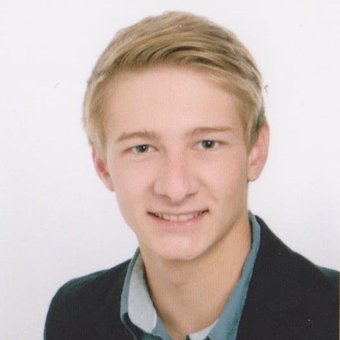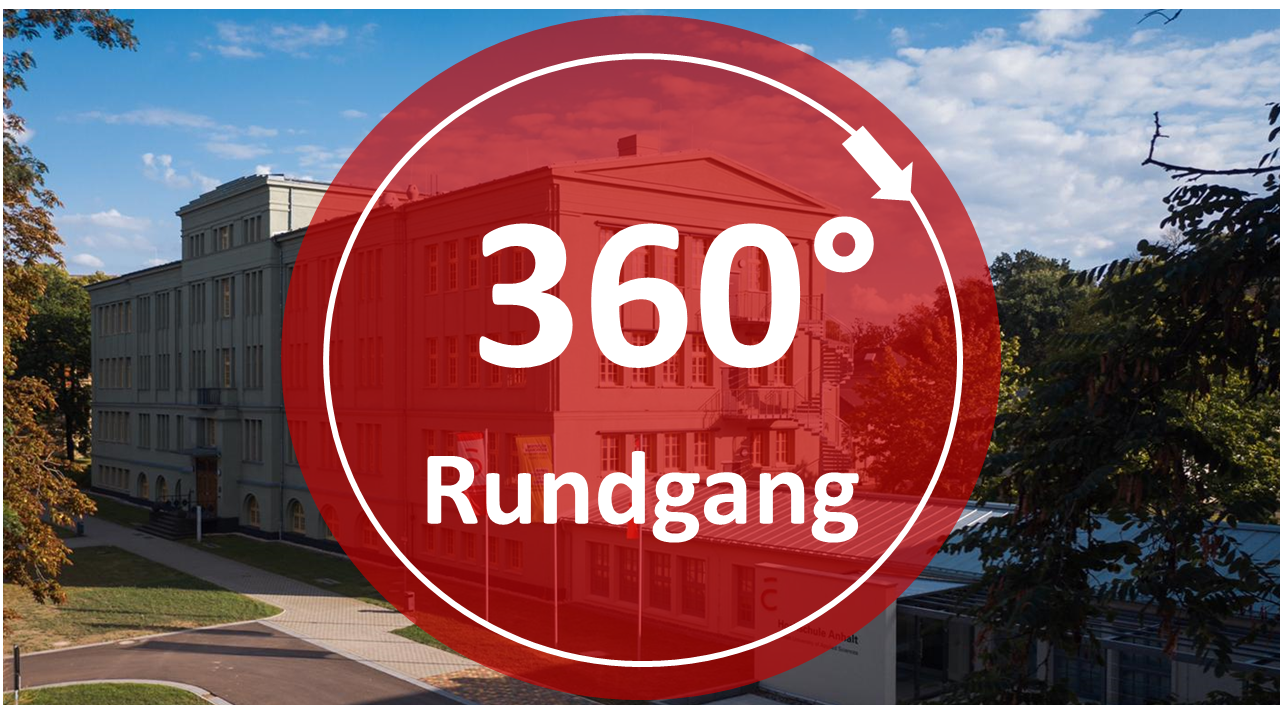Pharmaceutical Engineering (bachelor's degree, full-time, cooperative)
-
What is Pharmaceutical Engineering?
Pharmaceutical engineering is a specialization at the intersection of process engineering and life sciences. These engineers mostly work in the industrial healthcare industry, especially the pharmaceutical industry. Why? Pharmaceuticals are very special products. Their ingredients, called active ingredients, interact selectively with parts of the human body. Therefore, these active ingredients must have special quality characteristics in terms of content, purity and overall application. This starts with the raw material and its first processing stage and continues with special dosage forms to the packaged product, which reaches patients and consumers via pharmacies.
-
What does the degree program entail?
The education of a pharmaceutical engineer is versatile: It includes STEM basics and process engineering skills. In addition, this program teaches pharmaceutical basics: Active ingredients, pharmacology, toxicology and pharmaceutical technology. Students will learn analytical methods for product control from a practical perspective during the respective galenic preparation. In addition, the program teaches logistics, packaging technology, good manufacturing practice (GMP) and pharmaceutical law.
A special feature of the degree program in Pharmaceutical Engineering at Anhalt University of Applied Sciences is the joint core curriculum in Department 7 in the first 2 to 3 semesters. This joint core curriculum includes foundations in engineering and science and offers an insight into all degree programs of the department. This experience allows students to make a well-founded decision between the 4 different degree programs in Biotechnology, Food Technology, Pharmaceutical Engineering or Process Engineering, and thus offers students maximum flexibility in specializing for their future career.
-
What are my career opportunities?
One of the main professional fields for pharmaceutical engineers (Bachelor) is the quality control of products: with approx. 3,000 active ingredients approved in Germany, there are approx. 10,000 different forms of application, also known as dosage forms: Tablets, capsules, suppositories, ointments and gels, emulsions, sprays or infusion solutions. In addition, engineers control every single process from raw material to finished product: Grinding, drying, granulating, pressing, coating, etc. A pharmaceutical engineer has to precisely monitor these procedural processes whereby optimization of methods, validation of processes and troubleshooting are becoming everyday tasks. The goal is always to produce high quality products that can save lives and increase the quality of life!
The right preparation
-
Recognition of coursework from a first degree prog
Previous academic achievements from a first degree program and/or after a change of degree program or university or following studies abroad, and thus achievements which were completed at another university, may be credited on application post enrollment. Responsible for crediting previous academic achievements is the Examinations Committee of the respective department in coordination with the corresponding degree program advisor/lecturer. Frequently asked questions.
-
Important knowledge acquired at school
A prospective student of Pharmaceutical Engineering should have an interest in science and technology. Therefore, subjects including math, chemistry and physics, but also biology, are important basics. Ideally, you will have taken an advanced course in chemistry and/or have completed vocational training in a profession related to chemistry.
-
Preparation classes
Whether mathematics, chemistry or physics, our classes will prepare you for a successful start to your degree. If you do not have a higher education entrance qualification, we also offer a preparation course which will give you the opportunity to study at Anhalt University of Applied Sciences after successfully passing an entrance test. Click on the link below to find all relevant information about the courses and how to register.
-
Science, Technology, Engineering and Math Orientat
Still unsure if a STEM degree is right for you? We will support you during a one- or two-semester orientation program. The orientation program offers the perfect opportunity to get to know the university as well as different degree programs, to participate in examinations and receive credits, to get a taste of student life, and to prepare for a successful time at university.
-
Study without a higher education entrance qualific
Find all relevant information about studying with us without a higher education entrance qualification via the following link.
-
Pre-study internships
To be well prepared for the program, it is recommended that applicants, if possible, complete an internship of several weeks in a laboratory, ideally in the pharmaceutical industry. If applicants have already completed vocational training in this field, an additional internship is not necessary. In any case, you should think about an internship at Anhalt University of Applied Sciences. The university offers many opportunities to get a taste of lectures as well as laboratory work. Please feel free to ask us about open internship positions.
Weitere Informationen
-
Applicant Day
In September of each year, the Köthen Campus hosts Applicant Day.<br/>All applicants admitted to the program are invited to find out more about their potential new university, the lecturers and the degree program of their choice. Other interested individuals are also welcome to ask their questions of our experts. You can find the date for the next Applicant Day (at least one month before the event) in the university's Veranstaltungskalender event calendar
-
University Information Day
In June of each year, the Köthen Campus hosts University Information Day.<br/>Anyone interested in studying at Anhalt University is invited to get to know the University, our lecturers and students, as well as our degree programs. You can get a personal impression of our facilities and the campus and receive individual advice. The date of the next University Information Day in Köthen as well as at Dessau Campus and Bernburg Campus hiercan be found here
Important information about the cooperative program
-
Application
The first step is to apply directly to a company (ideally one year before you start your program). If you have an internship contract, you can apply normally (like any other prospective student) to Anhalt University of Applied Sciences by September 15 of each year.
-
Program sequence
The cooperative degree program includes an approximately 6-week long practical phase at the cooperating company during semester breaks from the 1st to the 6th semester. During these practical phases, students can write reportsthat can be recognized as elective modules and/or as project work under certain conditions. Students spend the entire 7th semester at the company for their internship and for the preparation of the thesis.
During the semester, students of a cooperative degree program participate in lectures, practical courses and lab/pool classes. Students are given time off from work during the examination periods.
-
Cooperation partners and internship companies
Unfortunately, not all companies notify us of their current status as cooperation partners.
This also changes frequently because, depending on demand, a company may not offer a cooperation partnership each year and contact information may change.
Please use the suggestions for practice partners in the list below:
List of suggested companies (only available in German)
Please ask the degree program advisor for possible internship companies or look for a company on your own according to the following requirements:
The company is part of the pharmaceutical industry.
The company is willing to provide a supervisor with a university degree for the intern.
The company assures that it will be in business for the duration of the program (at least 3,5 years).
The company has to accept the conditions of the cooperative degree program at Anhalt University of Applied Sciences (see explanation below).
-
Accommodation
Most of our cooperation partners are located in the vicinity of Köthen (max. 1h drive). Students need to take care of their own accommodation; however, it is recommended that students have an apartment in Köthen during the program and commute during the practical phases. If the commute is too far, students should organize and pay for a second room/apartment. The company providing the internship may be able to provide organizational and financial support, but they are not obligated to do so.
-
Compensation
Compensation varies greatly from company to company, as they are not legally required to pay the intern. However, most companies follow recommendations for vocational training wages and also pay during the teaching periods at the university (i.e. when students are not working at the company).
Since information about student wages paid by individual companies, unfortunately, changes frequently, we recommend contacting the specific company to obtain reliable information.
Given that affordable housing is relatively easy to find in Köthen, the compensation is sufficient in most cases to cover living costs.
-
Master’s cooperative degree program
Provided that the company agrees, the master's degree program in Pharmaceutical Engineering can also be studied as a cooperative degree program at Anhalt University of Applied Sciences.
Program sequence & program contents
-
1st semester
Mathematik I
Lectures and practical coursesIngenieurinformatik
Lectures and lab/pool classesPhysik für Ingenieure
Lectures, practical courses and lab/pool classesAngewandte Chemie
Lectures, practical courses and lab/pool classesMikrobiologie
Lectures and lab/pool classesRingvorlesung „Life Science Engineering“
Lectures -
2nd semester
Mathematik II
Lectures and practical coursesPhysikalische Chemie
Lectures, practical courses and lab/pool classesOrganische Chemie
Lectures and practical coursesAllgemeine Betriebswirtschaftslehre und Marketing
Lectures and practical coursesTechnische Strömungsmechanik
Lectures, practical courses and lab/pool classesWahlpflichtmodul
Lectures, practical courses and lab/pool classes -
3rd semester
Apparatetechnik
Lectures, practical courses and lab/pool classesAutomatisierungs- und Elektrotechnik
Lectures and lab/pool classesGrundlagen der Arzneiformenlehre
Lectures, practical courses and lab/pool classesInstrumentelle Analytik
Lectures, practical courses and lab/pool classesPharmazeutische physikalische Chemie
Lectures, practical courses and lab/pool classesTechnische Thermodynamik
Lectures, practical courses and lab/pool classes -
4th semester
Pharmabiochemie
Lectures and practical coursesMechanische Verfahrenstechnik
Lectures, practical courses and lab/pool classesPharmazeutische Grundlagen
LecturesMess- und Regelungstechnik
Lectures, practical courses and lab/pool classesInformationssysteme und Projektarbeit
The project can either be a research paper (theoretical) or a lab project (practical)Pharmazeutische Analytik
Lectures and practical courses -
5th semester
Pharmabiotechnologie
Lectures and practical coursesPharmazeutische Technologie fester Arzneiformen
Lectures and lab/pool classesQualitätsmanagement
Lectures and practical coursesVerpackungstechnik
LecturesPraktikum Pharmazeutische Analytik
Practical courses and lab/pool classesWahlpflichtmodul
Lectures, practical courses and lab/pool classes -
6th semester
Arzneimittelrecht und GMP
LecturesPharmazeutische Technologie halbfester und
flüssiger Arzneiformen
Lectures and practical coursesArzneimittelrecht & GMP
LecturesPraktikum Pharmabiotechnologie
Practical courses and lab/pool classesFremdsprache (Englisch oder für Bildungsausländer Deutsch)
Practical coursesWahlpflichtmodul
Lectures, practical courses and lab/pool classes -
7th semester
Berufspraktikum mit Kolloquium (=Verteidigung)
12 weeksBachelorarbeit mit Kolloquium (=Verteidigung)
10 weeks
See the module description handbooks for more information about the compulsory and elective modules.
Forum Pharmaceutical Engineering: Questions about Pharmaceutical Engineering are answered by our students.
Mehr erfahren
What you should bring to a cooperative degree program: Determination, independence, willingness to achieve and continuity.
Levin Schwarz student of the cooperative bachelor's degree program in Pharmaceutical Engineering


